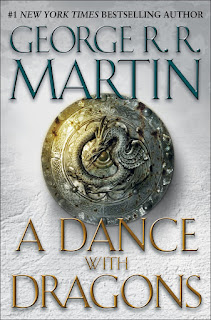Now, this is something really interesting - I found this book on my very first day on the ship as I checked the libraries - and its absolutely right "up my alley" as it combines history, archaeology, science and religion so these are some serious subjects that I always love to read about. Where science and religion differ about the matter of creation, beginning of life on earth and such - one perspective excluding the other - this book actually explains that nothing is black-and-white and in fact two stories don't have to necessary cancel each other, they actually might told the same story.
So far I was always more prone to stand by scientific explanation of evolution, meteorites bringing bacteria and life forms to our planet and slow circle of catastrophes, explosions of life and apocalypses again and again for millions of years - after all, we have fossils, archaeology, dna and many other ways of explaining the distant past, I simply didn't buy into Biblical version. Here, however we have two authors who are both scientists and religious so its kind of interesting twist, because guys are obviously technically well informed about their fields (one is chemist, the other astronomer) but they still respect the older tradition and claim that Biblical account might simply confirm scientistic version in different words. I am reading it right now with greatest interest (and its a refreshing to finally escape out of "Game of Thrones" universe) and the book covers all the points that always interested me - origin of man, religion, Neanderthals, dna, distant history, it is all here. Compared to George R.R.Martin this is now a pure pleasure and although it is a non-fiction, even science, I am sailing trough it with greatest ease.
----------------
I read it completely last night. It started with a bang, covering all the facts that I was previously familiar with, including mysterious one that scientists have discovered that humanity's female lineage track back to an earlier date than the male lineage - this doesn't mean that Eve was older than Adam but that long ago, some time in a history, some kind of catastrophe had almost erased men's dna and only small group of men have survived, while women's dna date to much older times. This actually reflects Biblical story of the Flood that almost destroyed the humanity. Another interesting point is our own genetic similarity to other living organisms on the planet, which authors point as Creator's use of already existing materials (not from the dust, but from available substances). Where people stand apart from other animals is our similarity to God, in a sense of having particular divine spirit, in other words a consciousness that allow us to have perception about morality, purpose, destiny, hope, questions about life and death, in short our reflection of his image. All is well up to this point, but where the book fails to convince me is the second part where basically all the older forms of humanoids are dismissed as not really connected to humans - I still believe that we evolved one way or the other from previous, much older relatives, while this book claims no, Creator had given us this special gift of brain and consciousness while previous branches of family have nothing to do with us, they were just half-animals. So dear, sweet Neanderthal was just another caveman with no connections to us - well, sorry Mr.Rana and Mr.Ross but this is where I disagree because I believe that there was an evolution, it was gradual, it took millions of years and there was no magic wand giving us the precious spark of intelligence (and why to us and not to chimpanzees?) and we are very probably combination of various genes, in fact we are probably children of both Homo Sapiens and Neanderthal who never completely disappeared but was assimilated into society of this new, stronger and more brutal visitor from the South.
It is very interesting to read - from the point of view of religious scientists - and it seems the whole ranch of this publishing company is focused on similar books, it is called RTB (Reasons to Believe) that tries to balance the connection between these two messages. I am always open to new suggestions and willing to accept different informations, after all, the more one knows the bigger perspective one gets. So from this book I took what I found interesting and left the rest. Still not convinced in a story about one omnipotent Creator and I am standing by the belief that we are result of random stardust life forms that have arrived from out of space and evolved trough millions of years. This also means that similar life forms can be found elsewhere, perhaps in different shapes (in other words, gigantic cockroaches/ants might be ruling life forms on another planets).









